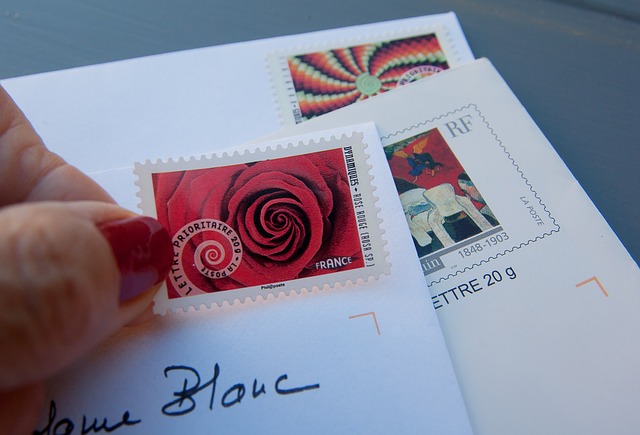In the UK, ensuring accessibility to cultural content is crucial for fostering inclusivity among diverse communities. UK Cultural Essays and Analyses face language barriers and digital inaccessibility issues, hindering non-native speakers' engagement. Translation Services are key to democratizing access by breaking down linguistic obstacles and preserving cultural nuances. Implementing inclusive design, digitizing archives, and providing multimedia content further enhances accessibility for all audiences, including those with disabilities or remote locations. Advanced translation technologies, combining human expertise with AI, ensure precise conveyance of complex ideas while maintaining cultural sensitivity. This promotes a vibrant cultural landscape where diverse voices reach broader audiences, fostering understanding and appreciation within the UK's rich heritage.
In today’s diverse society, ensuring accessibility to cultural content is paramount. The UK, with its rich tapestry of traditions and immigrant populations, faces unique challenges in making written works, especially complex UK cultural essays and analyses, accessible to all. This article explores strategies to overcome these barriers, focusing on the pivotal role of translation services in promoting inclusivity. From understanding accessibility norms to leveraging technology, we delve into best practices, case studies, and future trends shaping the dissemination of UK cultural knowledge.
- Understanding Cultural Content Accessibility in the UK
- The Role of Translation Services in Promoting Inclusivity
- Barriers to Accessing Cultural Essays and Analyses
- Making Written Content Accessible to a Diverse Audience
- Best Practices for Translating Cultural Material
- Case Studies: Successful Accessibility Initiatives
- Technology's Impact on Disseminating Cultural Knowledge
- Engaging with Marginalized Communities Through Translation
- Future Trends in UK Cultural Content Accessibility
Understanding Cultural Content Accessibility in the UK

In the UK, cultural content accessibility has become a pivotal topic, especially with the growing recognition of diverse communities and their need to engage with artistic expressions. Cultural essays and analyses play a crucial role in understanding the current landscape and identifying areas for improvement. The country’s rich cultural heritage offers a vast array of experiences, from historical museums to vibrant performing arts scenes, but ensuring these are accessible to all is essential. Translation services, for instance, can be a game-changer, enabling non-English speakers to participate fully in cultural events and understand the accompanying essays and analyses.
The UK’s commitment to inclusivity demands a comprehensive approach to accessibility. This includes making written content available in multiple languages, providing sign language interpretation for performances, and offering audio descriptions for visual art exhibitions. By implementing such measures, cultural institutions can attract a broader audience, fostering a sense of belonging and appreciation for diverse artistic interpretations. In light of this, translation services are not just an added convenience but a necessary tool to bridge the gap between cultural barriers and promote social cohesion through shared experiences.
The Role of Translation Services in Promoting Inclusivity

In an increasingly globalized society, translation services play a pivotal role in enhancing accessibility to cultural content, particularly within the UK’s rich cultural landscape. By providing accurate and culturally sensitive translations, these services ensure that essays and analyses from diverse sources can reach a broader audience. This is crucial for fostering inclusivity, enabling non-native speakers to engage with and contribute to discussions on various aspects of UK culture.
Translation goes beyond mere word-for-word substitution; it involves capturing the essence and nuances of the original text. When applied to cultural essays and analyses, professional translation services help convey complex ideas, literary devices, and local references accurately, preserving the integrity of the content while making it accessible to a multicultural readership. This accessibility is not just about language; it’s about promoting understanding, appreciation, and diversity within the UK’s cultural sphere.
Barriers to Accessing Cultural Essays and Analyses

Accessing cultural essays and analyses can often be hindered by several factors, particularly in the UK where diverse communities seek to engage with a rich tapestry of ideas and perspectives. One significant barrier is language, especially for non-native speakers. The UK’s multicultural landscape means many works are not readily available in various languages, creating a divide that limits participation in cultural discourse. This is where translation services play a vital role, enabling the dissemination of UK Cultural Essays and Analyses to a broader audience.
Another common obstacle is digital accessibility. Many valuable resources remain locked within physical archives or are poorly optimized for online platforms, making them hard to discover and engage with. This is especially problematic for younger generations who rely heavily on digital tools for learning and exploration. By implementing inclusive design principles and digitizing more content, we can ensure that cultural essays and analyses are accessible to all, fostering a vibrant and participatory cultural landscape in the UK.
Making Written Content Accessible to a Diverse Audience

Making written content accessible to a diverse audience is a key aspect of enhancing cultural engagement in the UK. It involves ensuring that essays and analyses, often the backbone of academic and artistic discourse, can be understood and appreciated by readers from various linguistic and cultural backgrounds. This process starts with clear and concise language, avoiding jargon or complex structures that might alienate non-specialist readers.
UK Cultural Essays and Analyses Translation Services play a vital role in this mission. Professional translation ensures that ideas expressed in these written works are accurately conveyed to a broader audience. By employing skilled translators who understand both the source culture and the target language, institutions can break down barriers and invite a more inclusive conversation around cultural content. This approach not only promotes accessibility but also enriches the overall experience for readers, fostering a deeper appreciation of diverse perspectives within the UK’s cultural landscape.
Best Practices for Translating Cultural Material

When translating cultural material for a diverse audience, especially in the UK where multiple languages and dialects are spoken, it’s crucial to go beyond literal translation. Best practices involve understanding not just words but also the nuances and cultural context. Professional translation services for UK Cultural Essays and Analyses should aim to preserve the original meaning, tone, and intent while making the content accessible to a broader range of readers. This often includes explaining cultural references, adapting language style for the target audience, and ensuring terminology is precise and culturally relevant.
For instance, translating historical events or literary works requires an in-depth knowledge of both cultures involved. A skilled translator would recognise that simple word-for-word translation might not convey the intended message accurately. They would research and incorporate appropriate terms and phrases from the target language to make the content more engaging and understandable for UK readers. This level of expertise ensures that cultural essays and analyses remain true to their essence while breaking down barriers to accessibility.
Case Studies: Successful Accessibility Initiatives

Many institutions in the UK have successfully initiated projects aimed at enhancing accessibility to cultural content, employing innovative strategies that include UK Cultural Essays and Analyses and Translation Services. These initiatives demonstrate the power of making diverse cultural materials available to a broader audience. For instance, museums like the British Museum have developed online platforms with detailed descriptions and translations of artifacts, enabling visually impaired visitors to explore exhibits through audio guides and braille resources.
Similarly, libraries across the country have implemented digital archives that offer searchable text and audio versions of rare books, ensuring that the elderly or those with reading difficulties can still access valuable cultural texts. These case studies illustrate how UK Cultural Essays and Analyses coupled with professional Translation Services play a pivotal role in breaking down barriers, fostering inclusivity, and enriching cultural experiences for all.
Technology's Impact on Disseminating Cultural Knowledge

In today’s digital era, technology has played a pivotal role in enhancing accessibility to cultural content, particularly in the UK where cultural essays and analyses have seen a new dimension. Online platforms, social media, and digital archives have democratised knowledge, enabling diverse audiences to engage with rich cultural heritage. Translation services, for instance, have broken down language barriers, making it possible for non-native speakers to appreciate and contribute to these discussions. This has fostered a vibrant exchange of ideas, enriching the UK’s cultural landscape.
Digital tools allow for interactive and immersive experiences, from virtual museum tours to online performances, ensuring that cultural knowledge is no longer confined to physical locations. Such innovations have been instrumental in promoting inclusivity, as individuals with disabilities or those living in remote areas can now access cultural content previously out of reach. This shift has the potential to shape a more inclusive society where everyone has an equal opportunity to engage with and contribute to the UK’s vibrant cultural tapestry.
Engaging with Marginalized Communities Through Translation

Engaging with Marginalized Communities Through Translation plays a pivotal role in enhancing accessibility to cultural content, particularly within the UK. Many communities, due to linguistic barriers or historical marginalization, have been excluded from mainstream cultural discourse. Translation services step in as a powerful tool to bridge this gap. By offering accurate and culturally sensitive translations, these services ensure that essays, analyses, and diverse forms of artistic expression reach broader audiences. This inclusivity fosters a more comprehensive understanding of the UK’s rich cultural tapestry.
UK Cultural Essays and Analyses, when translated, allow marginalized voices to be heard, enriching the nation’s cultural landscape. Translation goes beyond mere word-for-word substitution; it involves conveying nuances, idioms, and cultural references accurately. Professional translation services, equipped with native-level proficiency and specialized knowledge, are essential for preserving the essence of these works while making them accessible to a wide range of readers. This inclusive approach not only empowers marginalized communities but also enriches the overall cultural experience for all UK residents.
Future Trends in UK Cultural Content Accessibility

In the UK, the future of cultural content accessibility is set to be shaped by several key trends. One prominent development is the increasing demand for UK Cultural Essays and Analyses that cater to a diverse audience, including those with disabilities or language barriers. Advanced translation services are playing a pivotal role in this regard, ensuring that essays and analyses on diverse cultural topics become accessible to a broader spectrum of readers. These services not only facilitate understanding across languages but also incorporate accessibility features like screen reader compatibility and simplified text formats.
Moreover, technology is paving the way for innovative solutions. Artificial intelligence (AI) and machine learning algorithms are being integrated into content delivery platforms to automatically generate alternative text descriptions for images, improve voice user interfaces, and personalize accessibility settings based on individual needs. As the UK continues to prioritize inclusivity, these trends will contribute to a more accessible cultural landscape, enriching the experiences of both domestic and international audiences.
Enhancing accessibility to cultural content, including UK Cultural Essays and Analyses, is not just a matter of inclusivity but also a way to enrich society. By leveraging translation services and adopting best practices, we can break down barriers and ensure that diverse audiences can engage with these valuable resources. The role of technology in disseminating cultural knowledge is profound, enabling us to reach broader, more inclusive communities. Engaging marginalized groups through translation initiatives has proven successful, offering a roadmap for future trends in UK cultural content accessibility. It’s crucial to continue these efforts, ensuring that cultural essays and analyses remain accessible, vibrant, and available to all.
